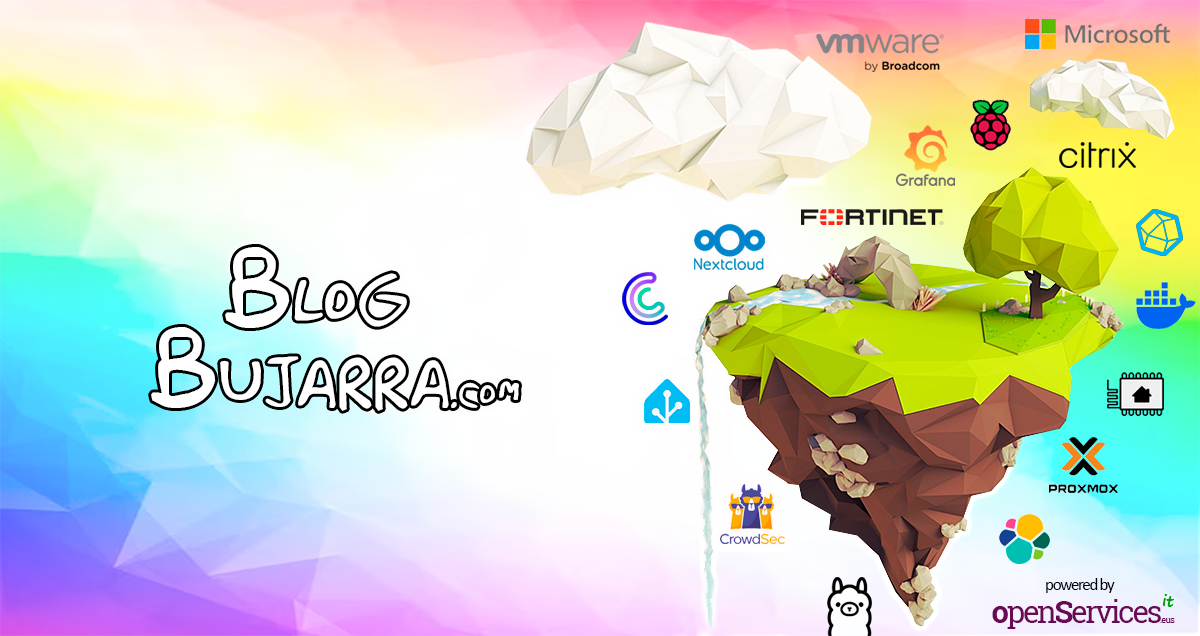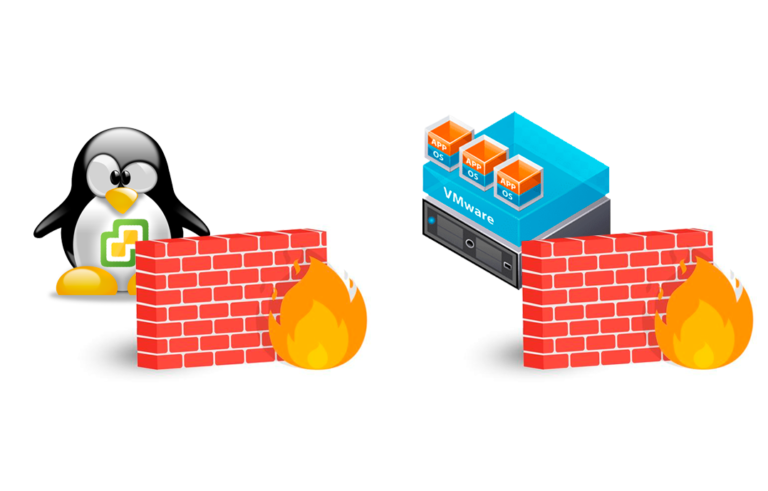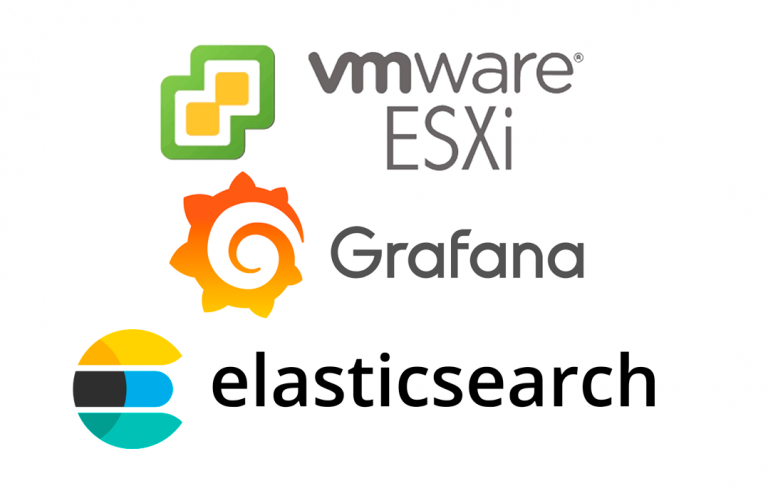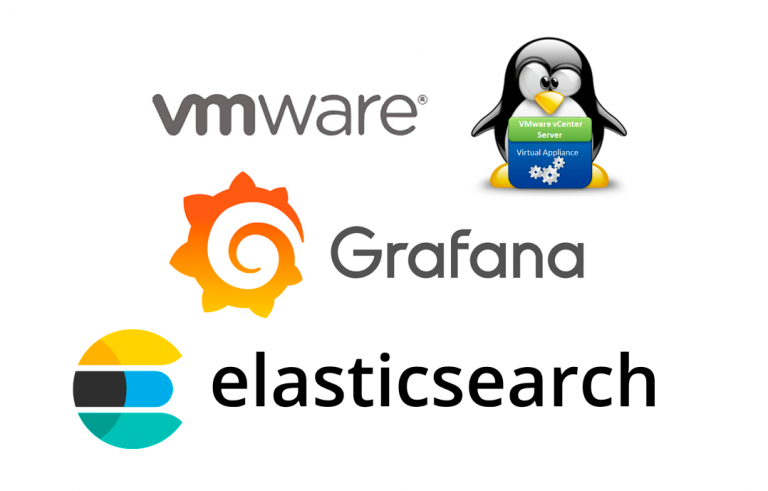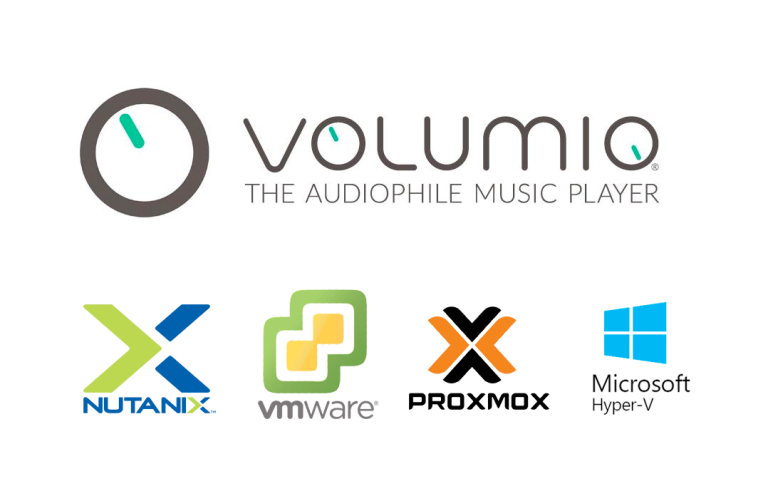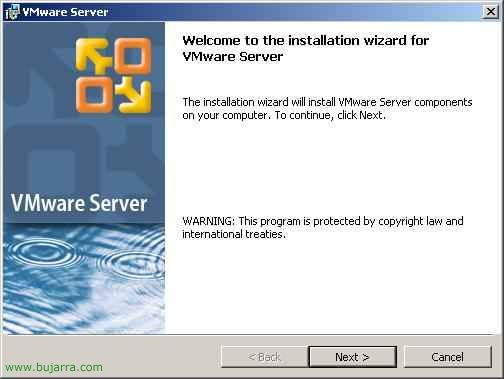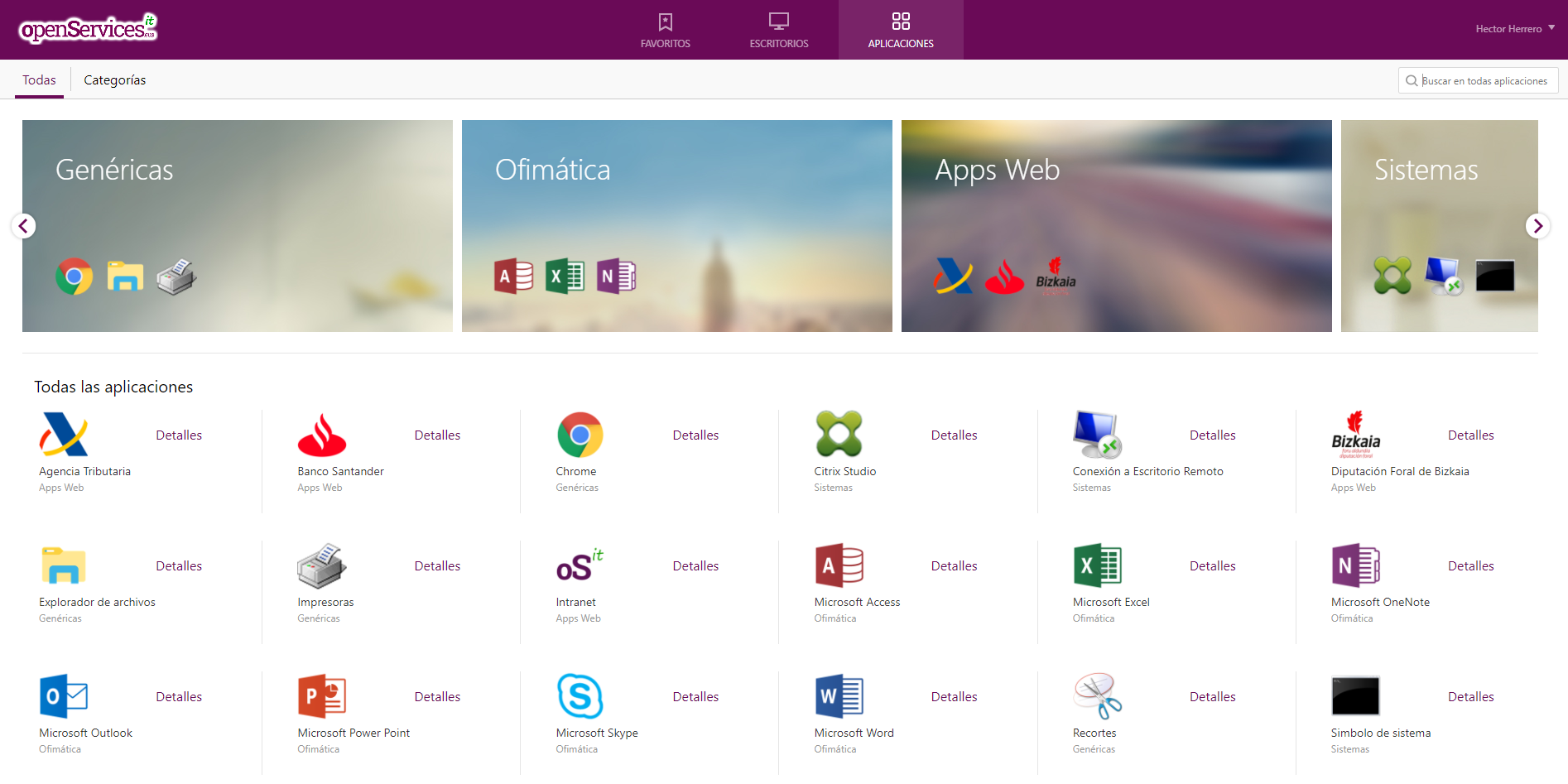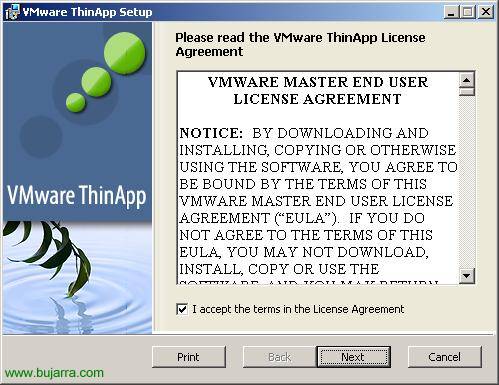
Installing and Configuring VMware ThinApp
Introducing a new VMware product, it is called VMware ThinApp and its purpose is to distribute applications to users, Streaming apps, new competitor e.g. Citrix Application Streaming (HERE). What I said, VMware Introduces Product as a Solution for Delivering Applications to Users, so that they can run them without the applications having to be installed on their workstations.
First of all we have to download the VMware ThinApp, for them we will enter the official VMware website: HERE.
We have three parts of the program, one that is the server or VMware ThinApp Server, is the server where the software will be installed. We will share the directory later “VMware ThinApp” of Program Files. And from the position where we want to create a package we will execute “Setup Capture.exe”, We will create the package and finally from where it is executed it will be from the client.

The first thing to do is to install the VMware ThinApp on a server, it doesn't have to be the one to be used to create distributed applications. We start the installation using a wizard. “I accept the terms in the License Agreement” & “Next”,
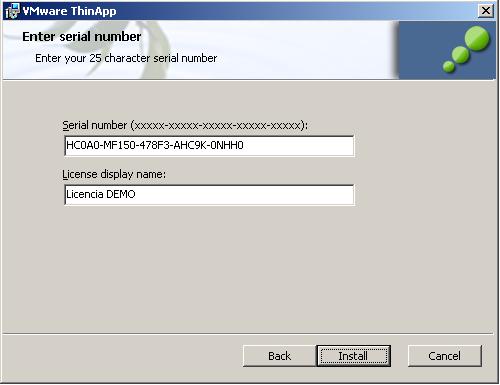
We indicate the license, When we sign up we can get a demo for our tests. “Install” to get the installation started,
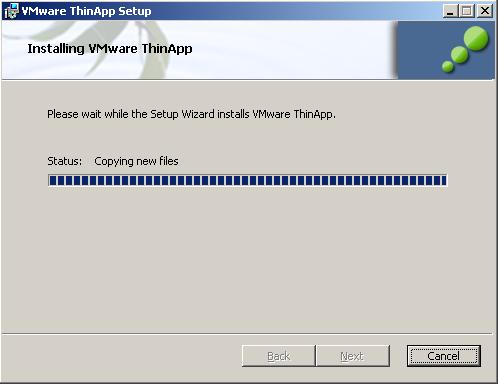
… We wait while the installation is finished…
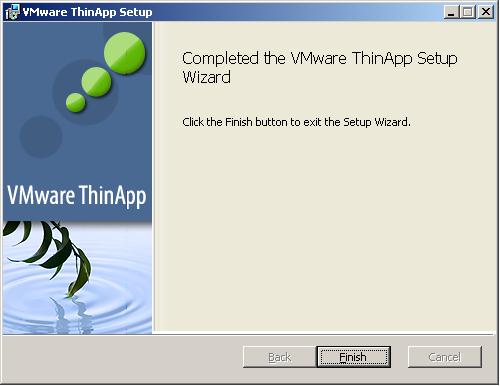
“Finish”.
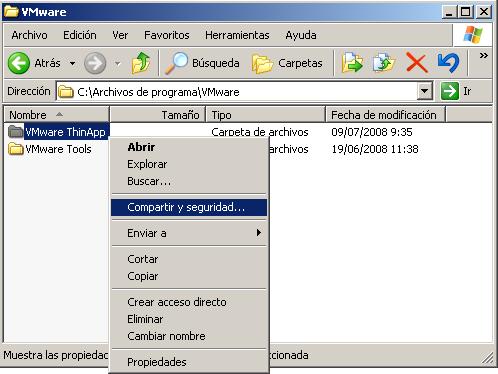
GOOD, Now we share the directory that he has created for us in “C:Program FilesVMwareWMware ThinApp” to be able to run the capture software from another computer and create the programs to be distributed from it, If we are going to use this same server, then, It won't be a mistake for us to share it.
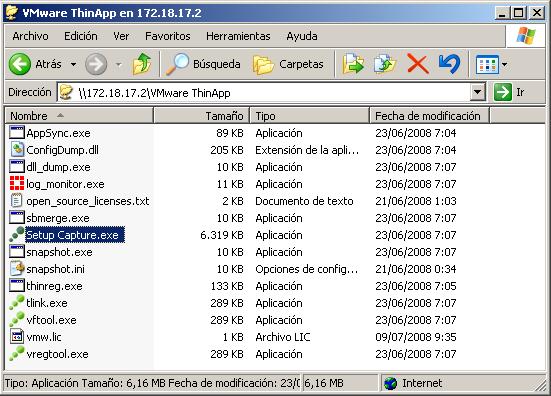
GOOD, Let's create distributed applications, we will do it from the server that we want to install applications so that the ThinApp process captures which files are necessary. This process must be run on a clean machine, This is, that has no programs installed, Because if not, when we install the applications we want to distribute and we have a DLL already on our system, it will not generate it in the destination post. In short,, It is advisable to have a machine just for this (and it is not worth uninstalling the applications at the end, you have to format or use VM templates). To start creating a distributed application we run “Setup Capture.exe”.
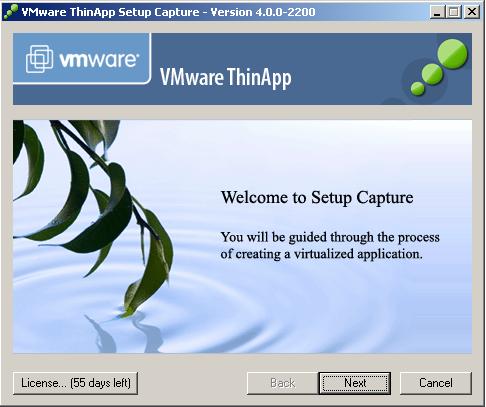
Start a setup wizard, “Next”,
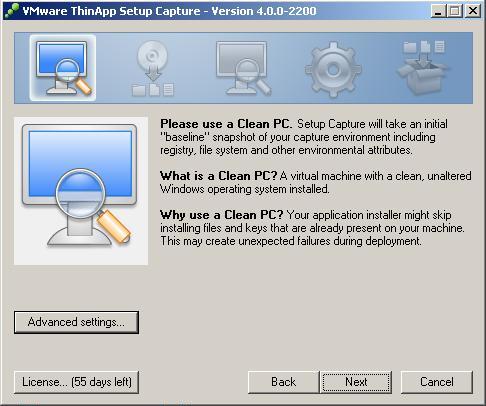
We must confirm that we are on a clean machine, “Next”,
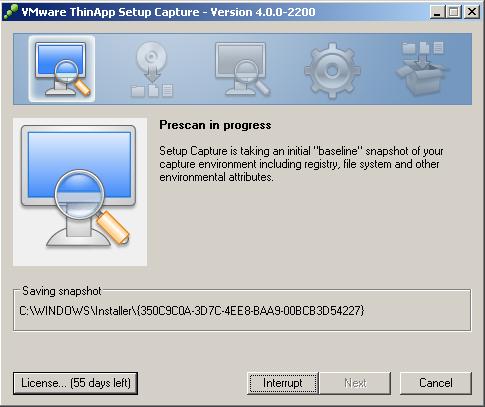
… We wait while you take a snapshot of our team, is a picture of the condition of our equipment, examine what data the hard drives and registry have…
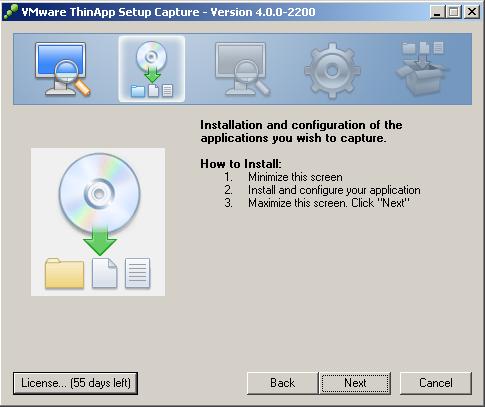
GOOD, Once the analysis is complete, We must minimize this screen, install the application that we want to distribute to customers and once installed we will return to this screen. So we minimize,
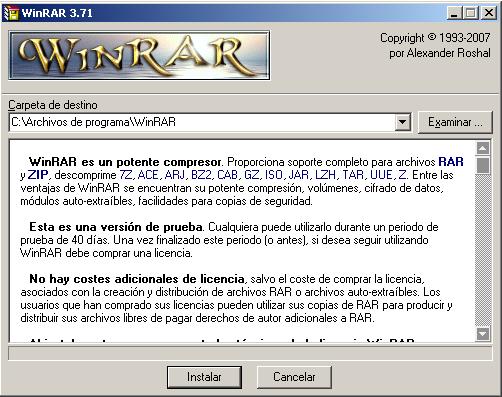
And we install the application that we want to distribute to our users to use Streaming…
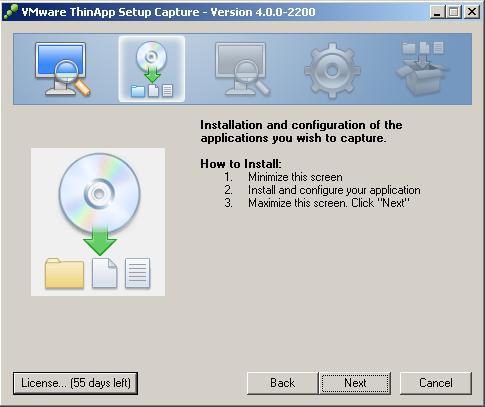
Once our application is installed and configured, we return to this wizard that we had minimized and click on “Next”,
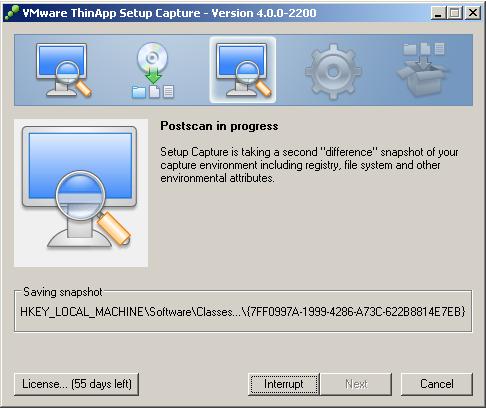
… Scan the hard disks and registry again looking for the differences to put them in the file to be distributed…
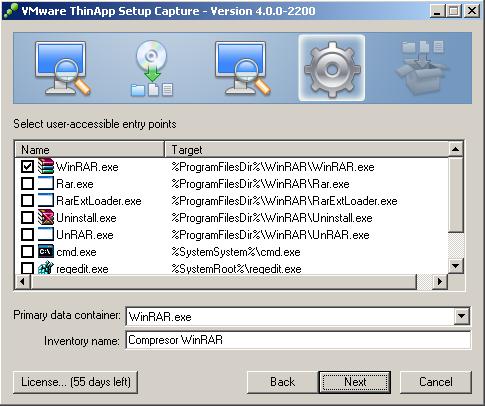
We select our app and continue, “Next”,
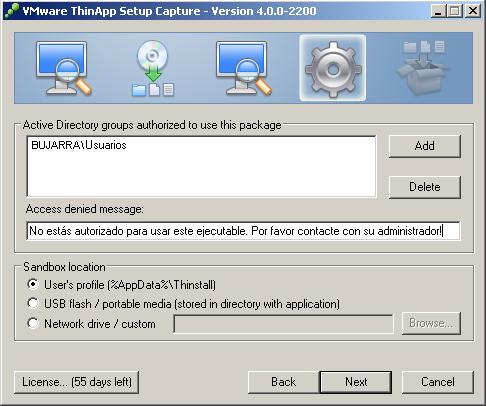
We select the users or groups of users to whom we will give access to this program, We can make everyone run it too. We can customize the message if a user does not have permissions to execute it. “Next”,
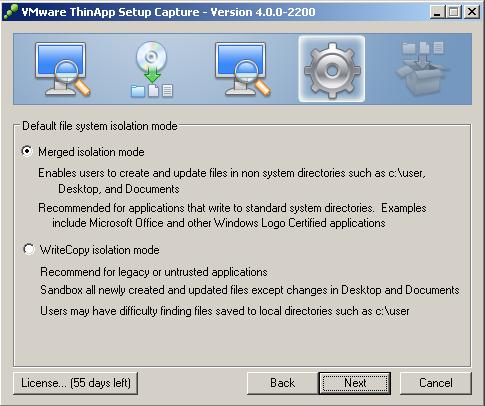
We select the first type of application isolation “Merged isolation mode” which is to allow users to work normally and save files freely. “Next”,
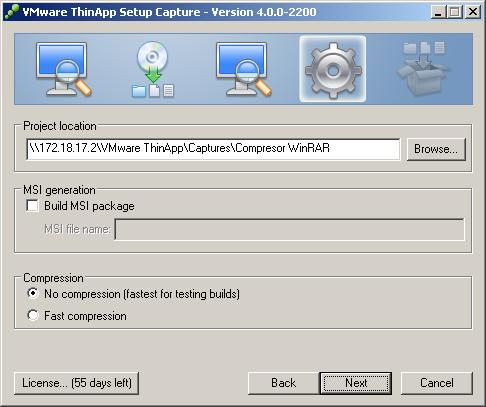
Select where we want to save the project, we can also generate the MSI already and also compress it. “Next”,
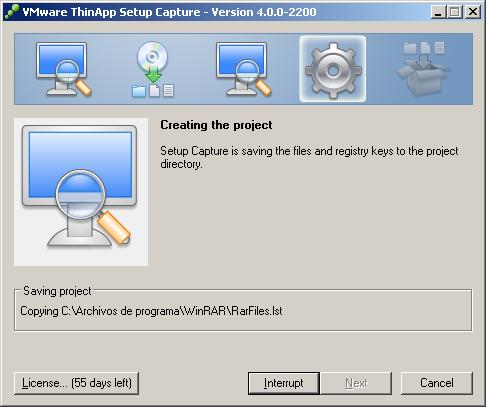
We wait while you create the project…
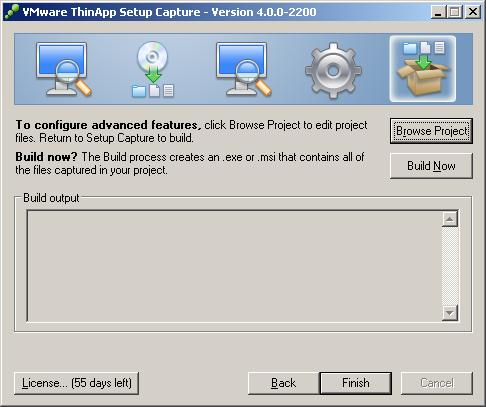
And if we click on “Browse Project” we will be able to explore through the directories…
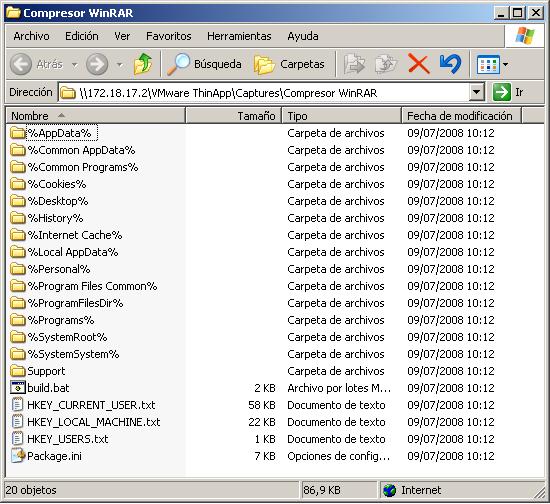
This would be,
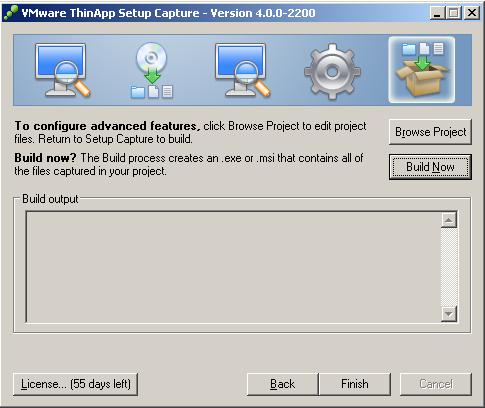
But what you need to do is generate the executable, Compile, for that we click on “Build Now”,
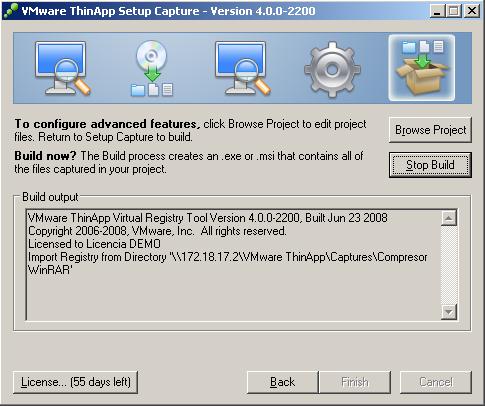
We wait while you compile and create the executable…
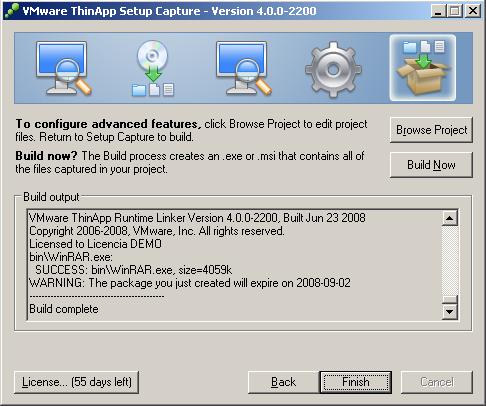
GOOD, Once created, we see where it leaves it, Click on “Finish” To go out.
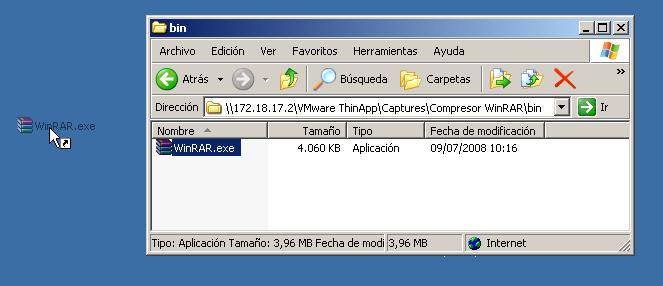
Now we need to get the user to run the EXE that the application just compiled for us, for that, it is enough to put a shortcut or configure through scripts or GPOs that it has access to the EXE.

When you run it, the user will open on your PC without having it installed…
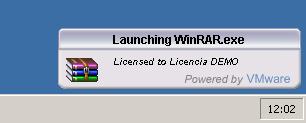
It would load in the toolbar…
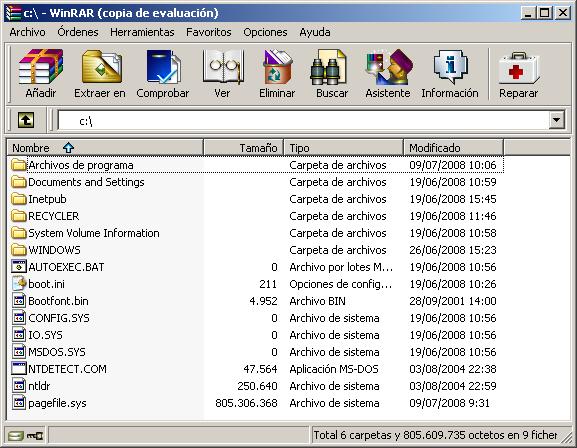
and would run without being installed!
www.bujarra.com – Héctor Herrero – Nh*****@*****ra.com – v 1.0
